In 2015, I decided to create my own Startup MBA studying the trends of digital transformation and the future of online education being driven by exponential technological innovation.
I had been running DIY Genius for 5 years and I was ready for a big mindset shift and I wanted to learn how to automate, optimize and systematize my business processes so I could focus more of my time and energy on the work I really enjoy and what I am good at doing.
To design an entrepreneurial MBA curriculum, I used the lean startup methodology, studied that latest marketing and business automation tools, and I sought out the best advice from local entrepreneurs, investors and early adopters who I met at local conferences and startup pitching events.
I set a clear goal to take one online course per month and supplement this with self-directed online education through books, podcasts, audiobooks, whitepapers, and a mastermind accountability group that I created to team up with some friends and colleagues who were on a similar entrepreneurial path.
While I had previously worked for many years in digital marketing and had been running my own mental training business on the Internet for a few years, I knew that I still had a lot to learn about how to scale and grow my business in such a way where I could balance making a high income with having the necessary personal time to unplug, travel, and enjoy other things in life.
I value creative freedom and having time unplugged to go on lots of adventures more than anything so it’s very important for me to not get sucked into the chronic time poverty that characterizes the work-life balance of so many business executives and traditional professionals. Which is exactly the kind of lifestyle that the standard MBA seems to lead to.
Digital Transformation And The New Entrepreneurship MBA
I strongly believe that if you want to understand digital transformation and the forces that are reshaping the way we live, work and communicate then you won’t get a clear picture following the typical MBA path of batched corporate training lectures and imaginary group work projects.
Plus, saving the $70-120K in tuition and living costs for an MBA program frees up a lot of money to invest in a startup while retaining the flexibility and time to travel to leading digital transformation conferences and startup hubs where it is easy to meet other online entrepreneurs to do joint ventures and collaborations with.
While I think a traditional MBA can be very helpful if you want to move higher in management at a large multinational corporation, the price tag for a high-tier MBA school where you will make the best connections is now over $100K, which means you will exit the program with a high level of debt that can really limit your options if you want to be an entrepreneur.
Also, while the long-term connections and relationships built in a traditional MBA program can be helpful, all of your colleagues graduating with you are going to be your competition to land the best jobs.
Smart companies with the highest-paying jobs like Google, Amazon, and McKinsey want to scoop the top 20% of MBA graduates but many of the rest will struggle to find the good-paying jobs where they can easily manage their long-term debt payments.
A traditional MBA school can come with a mortgage-like level debt payments that can run in the neighborhood of $1K a month for a decade. If you’d rather be an entrepreneur, why not take that money and invest it in yourself over a decade as you test your ideas and learn by doing?
Designing Your Own Digital Entrepreneurship MBA:
I have found that I learned my most effective strategies and tactics as a digital marketing professional through being a part of online mastermind groups and seeking out coaching and mentorship from successful entrepreneurs I respected.
I believe the fastest way to learn is by finding a successful person who has already achieved something similar to what you really want. This way you can be influenced by their mindset and way of thinking, which makes it much easier to model their behavior in your own way with their mentorship.
From my experience dreaming up this MBA for digital transformation and online entrepreneurship and then spending two years pushing myself to learn, delegate and grow in the entrepreneurial management process using the best digital automation tools, this is my best advice for launching a scalable online business:
1. Follow The Principles of Lean Startup Methodology.
The best way to build an online business is to follow a tight build-measure-learn feedback loop so you can quickly test your assumptions and not waste precious time solving the wrong problem.
While many people spend years endlessly planning it out their hypothetical business ideas in their mind, a lean startup approach means building an M.V.P. (minimum viable product) fast so you can test your assumptions and boldly start the process of iterating your way to success.
Without an M.V.P. to start validating your business idea, you might end up wasting months or years of your life. I also highly recommend reading The Lean Startup book.
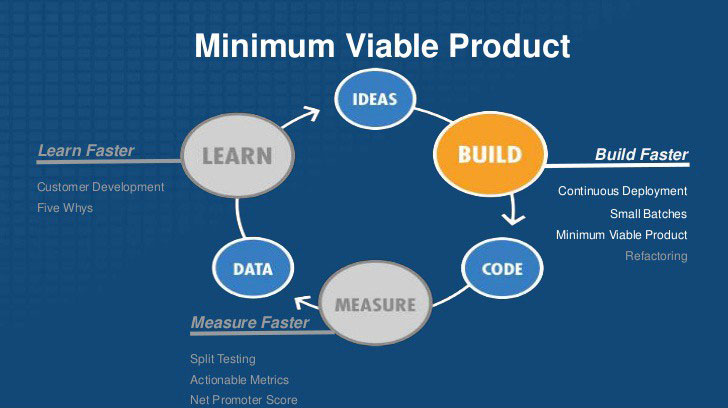
2. Build a Lean Canvas to create a 1-page business plan.
To understand the lean way of thinking and start creating a business plan to execute your startup business idea, I recommend creating a Lean Canvas for all your business ideas and even for individual products and services you’re planning to sell.
The Lean Canvas is a 1-page business plan that helps you get clear and concise about your business model so you can start mapping out your buyer’s journey, unique value proposition and how you are going to grow and generate the consistent revenue you need to keep going and scale your business with advertising.
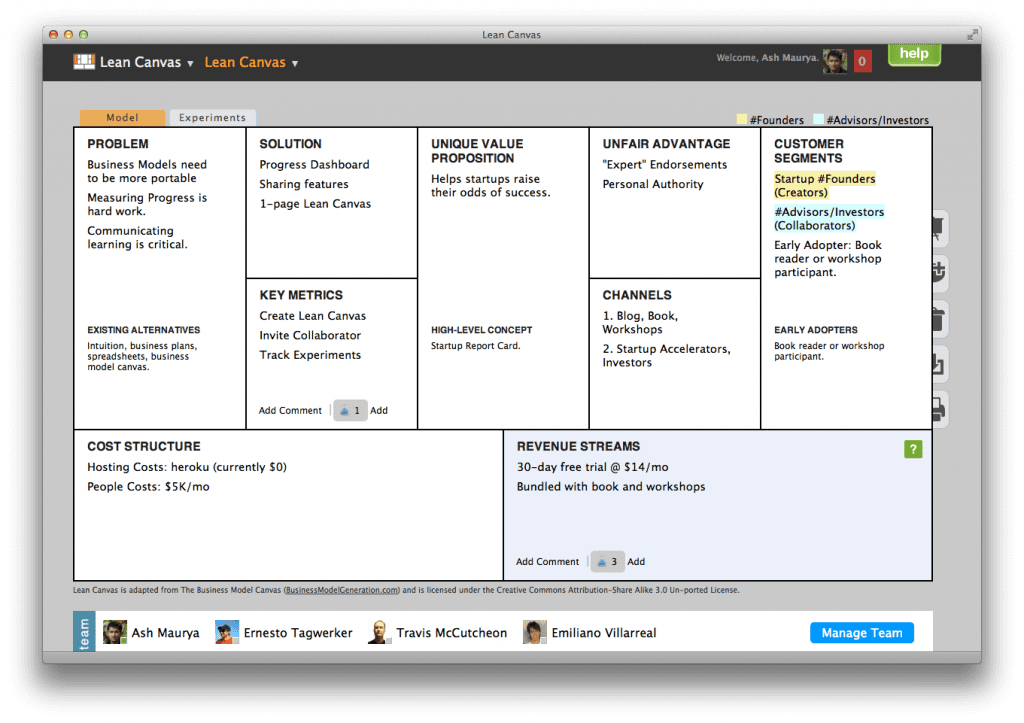 3. Work from a coworking space and apply to a startup accelerator.
3. Work from a coworking space and apply to a startup accelerator.
My first experience working in a startup accelerator was when I went through the Startup Chile program in 2011. It was a life-changing experience where I learn much more practical knowledge about business in 6 months than I had in 4 years in University.
I found that working in the same coworking space with entrepreneurs from 35 countries completely changed my outlook on business and life. I recommend applying to a number of startup accelerators and working from a coworking space or coliving space for entrepreneurs where you are surrounded by other successful freelancers and entrepreneurs.
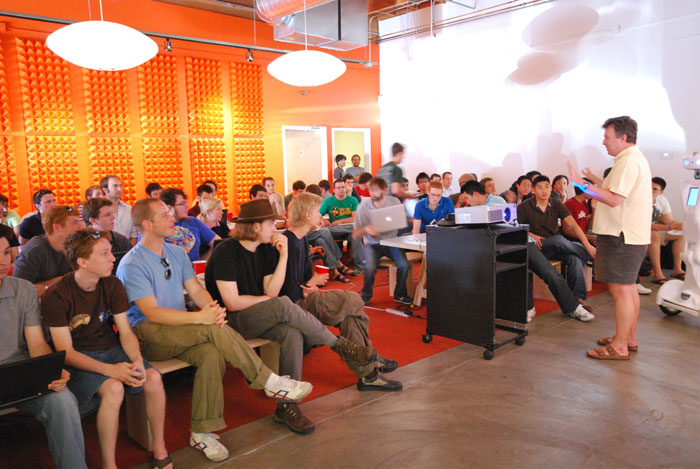
4. Attend as many conferences, retreats, and training workshops as you can.
Business is all about relationships. As legendary business strategist Jim Rohn famously said, you’re the average of the 5 people you spend the most time with. So, choose carefully the people you surround yourself with.
I spend more than about $10,000 a year on online training and conferences and they are crucial for building new relationships and keeping my digital craft strong. If you want to be a successful entrepreneur then it is imperative to spend time with other self-motivated entrepreneurs.
Subscribe to the free Startup Digest for your area and consider moving to a major startup hub or a digital nomad hub to find the right community for your needs.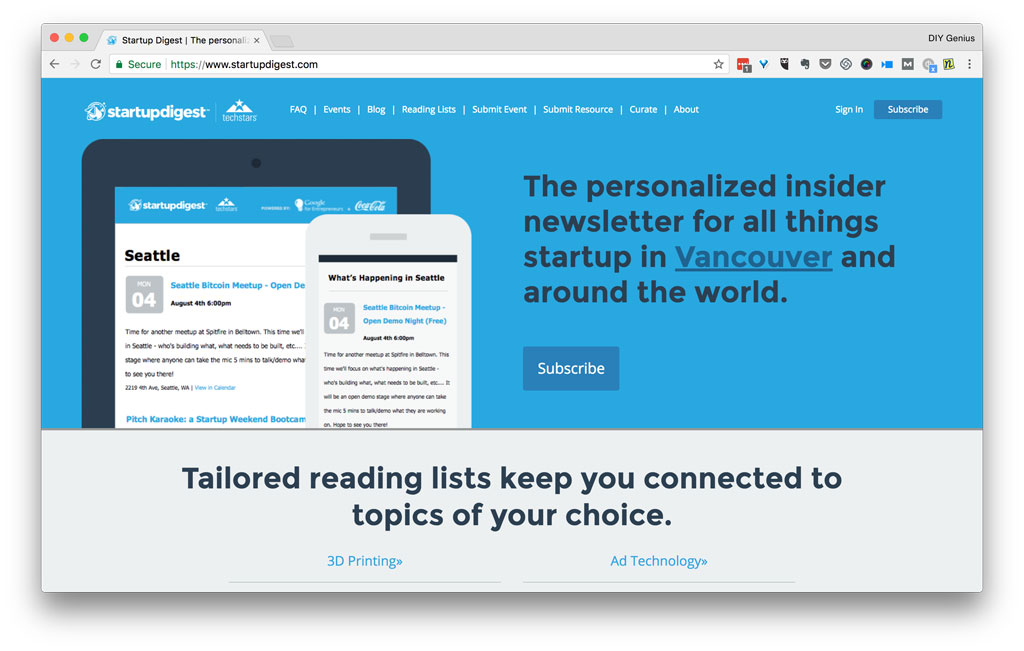
5. Make new connections and take them for lunch.
One of the best pieces of advice I’ve ever received is to try your best to never eat alone. If you want a professional network in your LinkedIn Rolodex that will support your business, you need to cultivate relationships with face-to-face conversations.
I recommend focusing less on social media and networking apps and more on meeting new people at events that interest you. Make sure you follow up with them promptly (few people actually do) to take them out for lunch so you can build a meaningful relationship over time.
I also have found it really useful to join a regular meeting or mastermind group with fellow entrepreneurs so you can provide each other with emotional support and make yourself accountable to a close-knit community inner circle of entrepreneurs you trust.

6. Build your leadership platform with public speaking.
We all know that most people feel they would rather die than willingly do public speaking. This makes public speaking a highly valuable skill and nearly every entrepreneur has to become an effective public speaker and storyteller to succeed.
Without an effective presence on stage, you’re missing out on one of the best ways to build your personal brand and form new business relationships. Start with Toastmasters and then network to find Meetups or local TEDx events where you can speak in front of a large audience.

7. Learn how to apply Agile Methodology in your work.
The key to success in managing an online teaching business is to automate and delegate the tasks that are outside your “zone of genius”. Get clear about the tasks and activities that get you into a state of flow so you can focus your time exactly where you create the most value for your customers.
If you want to manage a team of freelancers, you must optimize where you spend your time and build processes that allow you to delegate and automate routine tasks. To manage people remotely, I use the Agile Methodology, which was developed in Silicon Valley and used by remote teams at many successful tech companies.
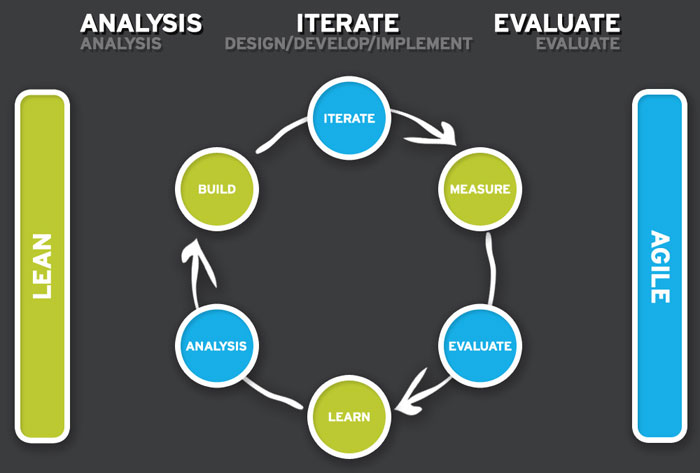
8. Use design thinking to solve meaningful problems and test your ideas.
There are over 1,00,000 failed apps in Apple’s App Store. The only way to have great ideas is to have a lot of them. It is imperative that you get your ideas in front of potential customers by actively creating content and evangelically sharing how you solve a problem for your target market.
I highly recommend getting very clear on exactly the problem you are solving for your audience so you can prove product-market fit. The design thinking process can help you test your ideas with your prospects and experiment with better ways to serve your customer’s needs.

9. Build your own “tribe” through brand storytelling.
If you’re building a business, you should also be building your personal brand as a leader because entrepreneurship gives you a great story to document.
Practice telling your story with consistency in under 30 seconds so you hook the right people instantly and learn how to use video storytelling to use social media to attract an audience that wants to learn from you.
If I had to start over, the first thing I’d focus on is clarifying my core message and developing my brand story. As well-respected marketing author Seth Godin, “Marketing is no longer about the stuff you make, but about the stories you tell.”
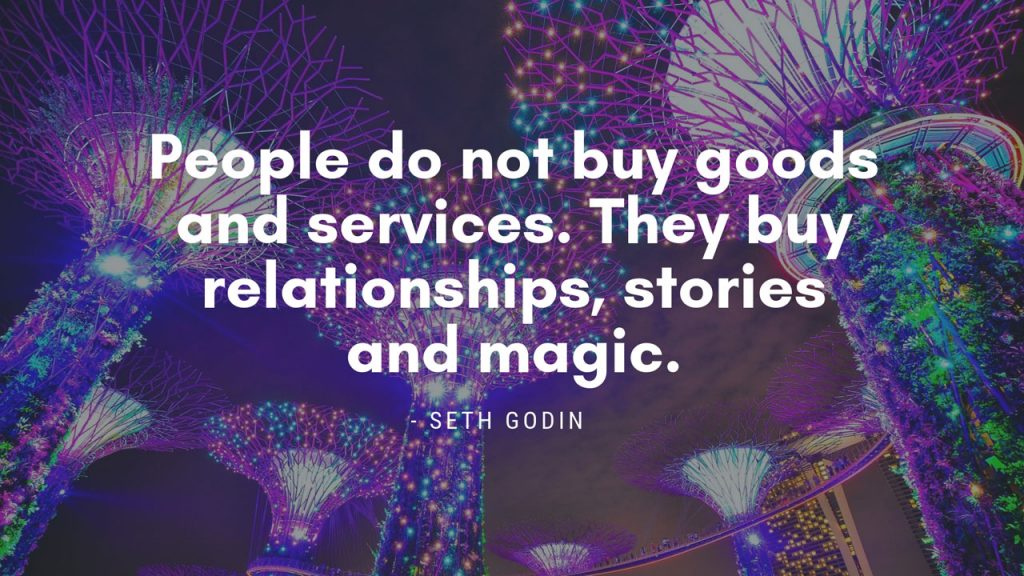
10. Constantly educate yourself by taking online courses and joining group masterminds.
The only way to stay ahead in an innovation-driven economy is by being a lifelong learner. Study the new digital industries that are taking off, travel widely to see different parts of the world and immerse yourself in the world’s amazing cultures while working from your laptop.
I’ve also noticed a huge correlation between how often you read books and how wealthy you become. Not just any books but cutting edge books and classic books from across the ages. Try to read at least 2 books a month to really exercise your mind and imagination.
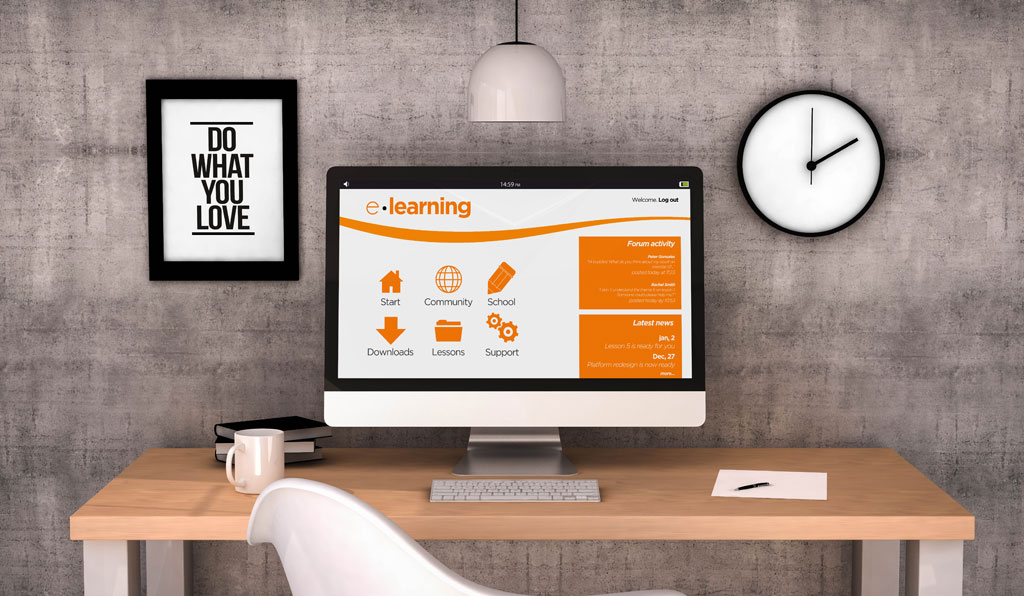
Move Fast And Break Things
When you commit yourself to design your own education by creating your own entrepreneurship MBA, you will gain the power to create your own opportunities in life.
The author Mark Twain once said, “the secret to getting ahead is getting started.” There is magic in boldness so start small, learn through the process of trial-and-error and you’ll be amazed at what you can do.
If you want to build your personal brand while you’re studying for your Startup MBA, the fastest way to do that is through video storytelling.
Take my free 5-day Video Storytelling For Social Media challenge and learn how to film high-quality videos with your iPhone or Android smartphone.
The challenge covers a step-by-step process to get confident in making videos and how to create your own storytelling flow so you can quickly make unscripted videos.




